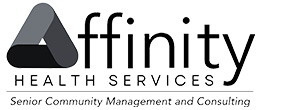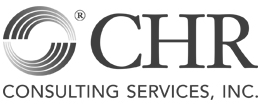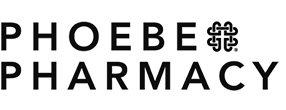2024 Annual Summer Symposium on Quality
PADONA offers recordings and presentation material from our annual conference sessions. These sessions are designed to provide long-term care nurses with education and training.
Annual Summer Symposium on Quality
Purchase Sessions for Education & Training
Purchase video recordings and presentation material from our conference sessions to help train your team. Sessions are available to both PADONA members & non-members.
Once your payment has been received and membership status verified, you will receive an email with a link to download the session recordings and presentation material. For payment questions contact Candace Jones at cjones@padona.com.
PADONA is an approved provider of continuing nursing education by the Pennsylvania State Nurses Association Approver Unit, an accredited approver by the American Nurses Credentialing Center’s Commission on Accreditation. No presenters or planners have a conflict of interest relative to this webinar. Nursing contact hours cannot be awarded for completion of the audio recording. PADONA assumes no liability for the accuracy of the information provided.
Purchase All Sessions from our 2 Day Symposium with All Power Points and Recordings
- Prevention of Readmissions
- Respiratory Care
- Falls Prevention and Management
- And Many Others
Purchase Individual Symposium Sessions
Below you can review each of the sessions from our Summer Symposium on Quality and purchase individual videos with handouts.
Antibiotic Stewardship – Preserving the Miracle
Presented by: JoAnn Adkins, BSN, RN, CIC, LTC-CIP, FAPIC, Senior Infection Preventionist – Pennsylvania Patient Safety AuthorityPreventing Readmissions
Presented by: Jennifer Fittery RN, BSN with CHR Consulting ServicesProactive Falls Management: A Review of Risk Identification, Preventative Strategies/Care Planning, and Staff Empowerment
Presented by:: Julie Bellucci, SLP and Erin Burns, RN, PTA with Premier Therapy, LLCBasic Respiratory Assessment by Nursing in the Long Term Facility
Presented by: Tonna Berenstein CRT, LPN, a thirty plus year Respiratory Care professional experienced in Acute care, Long term Acute Care, Nursing Home, Emergency Department, Rehab and Homecare.Sexual Wellness in Aging
Presented by: Dr. Casey Pinto. An assistant professor at Penn State University where she teaches public health and researches disparities in the prevalence of sexually transmitted infectionsSexual wellness incorporates a multitude of factors but I will focus on the following few topics:
Everyone has sex, so learning how to talk about it is a must with a discussion of the CDC’s 6Ps. Factors impacting behaviors that will put older adults at a higher risk for STIs and PID (lack of sex education, lack of a fear of pregnancy) and how to mitigate these risks. Review of the following STIs symptoms, side effects, treatment, and testing:
Syphilis, Mpox, HIV and Chlamydia/Gonorrhea.
Restorative Nursing Program: Implementation and Maintenance
Presented by: Sophie Campbell, MSN, RN, CRRN, RAC-CT, CNDLTC, Executive Director for PADONA.Let’s Talk Behavior Management
Presented by: Angela Huffman, RN, WCC Clinical Program Specialist, Real Time Medical Systems with greater than 30 years’ experience in healthcare and long-term care.- Objectives for this education session include:
- Understand Federal requirements to meet behavioral health needs
- Describe the presentation of different types of problem behaviors
- List the triggers and causes of behaviors in persons with dementia
- Discuss the impact of routine and meaningfull activities
- Identify evidence-based interventions to address behaviors related to emotion, sensation and agitation
- Discuss drug and non-drug interventions that may be used to manage problem behaviors
Navigating Opioid Use Disorder in Long-Term Care Facilities: Treatment, Screening, & Education
Presented by: Dr. Jean Storm, DO, CMD, CHCQM, Medical Director for Quality Insights,Addressing and Managing Suicidal Ideation
Presented by: Dr. Erica Featherson, a Licensed Psychologist who has worked with residents in rehabilitation and long term care facilities through supportive care.Surveys and Behavioral Health: Navigating Your Way
Presented by: Edward M Faulkner RN BSN NHA, VP of Clinical Operations for Vital HealthCare SolutionsImproving the Quality of Medication Reconciliation
Presented by: Melissa S. Baxter, PharmD, BCPS Director of Clinical Pharmacy Services Woodmark Pharmacy of NY and Avra Thomas PharmD, MS, BCGP, FASCP Senior Director of Pharmacy Practice American Society of Consultant Pharmacists (ASCP)Empower and Engage: Strategies and Successes for Staffing Stability in Long-Term Care
Presented by: Dr. Jean Storm DO, CMD, CHCQM; Amy Porter BS, LPN Dr. Jean Storm is the Medical Director for Quality Insights, which is a quality improvement organization.Have a Question?
CEO/President
Candace McMullen
(814) 617-1435
cmcmullen@padona.com
Directed in Service & Continuing Education
Sophie Campbell
(724) 601-7873
scampbell@padona.com
Membership
LuAnn White
(814) 599-3717
luann@padona.com
Free Consultation
Whether you are interested in becoming a member, exhibitor, sponsor, scholarship recipient, etc, we will answer all of your questions. Lets schedule your free consultation.
*During our programs, speakers declare any conflicts of interest and do not promote off label use or promote specific products during the webinar.
PADONA is an approved provider of continuing nursing education by the Pennsylvania State Nurses Association Approver Unit, an accredited approver by the American Nurses Credentialing Center’s Commission on Accreditation.




